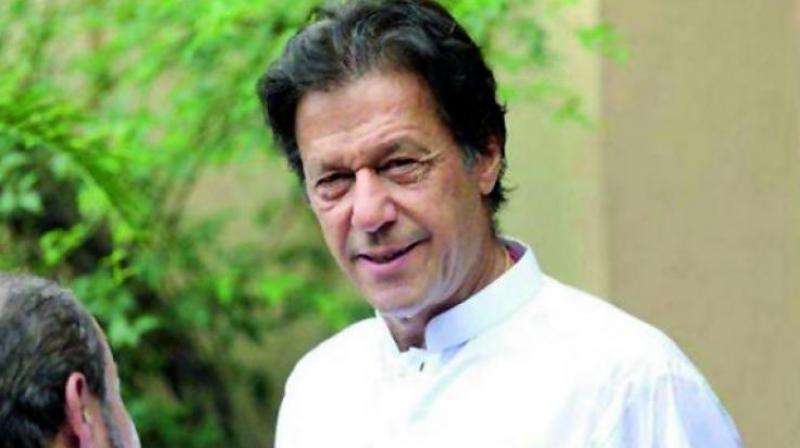More to Pakistan rebuff than meets the eye

As the world erupts over the Modi government’s dramatic volte face announcing a “meeting” with Islamabad on Thursday and not only calling off the overture the next day but painting the four-week-old Pakistan Prime Minister Imran Khan as the “real face” of terror has Delhi over-reacted, thrown every diplomatic nicety to the winds?
Or is it working to a game plan that only the top echelons of power are privy to? As in the Prime Minister, his closest advisers with key ambassadors in Washington, Islamabad and Kabul weighing in?
Clearly, the decision to respond to the Pakistani premier’s September 17 letter where Khan proposed a meeting between the two foreign ministers could not have been given a thumbs down. Prime Minister Narendra Modi would have looked like he was foot-dragging and against talks. The giveaway that Delhi hadn’t opened the door fully came with the Foreign Office spokesperson’s qualification that the Sushma Swaraj-Shah Mehmood Qureshi encounter would be a “meeting” and not full-fledged talks, and that it was not even a run-up to dialogue either in New York or at the proposed Saarc summit in Islamabad, that Pakistan is keen on pushing as a launch pad for Imran Khan to emerge on the world stage.
Acquiescing to a “meeting” over “dialogue”, and the opposition’s shrill and valid criticism that the Prime Minister had deviated from his “no talks unless terror stops” line notwithstanding, the received wisdom is that scrapping the talks over the specious argument that Pakistan had issued stamps commemorating Kashmiri terrorist Burhan Wani, the brutal mutilation of a BSF soldier and the abduction and killing of J&K police, feeds into the domestic rather than the international narrative.
Three key BJP-run states that have had an indifferent track record in governance are heading for polls, and 2019 is critical as a re-election year. The last thing that PM Modi wants, is to be a one-term premier like Atal Behari Vajpayee’s government. With the economy in free-fall, the BJP is said to be uncertain it can repeat the unprecedented electoral sweep of 2014. That’s not all. With the Congress unable to look the Rafale gift horse in the mouth, the “talks-no talks” trope is said to be a ruse to draw attention away from a defence deal that attempts to cast Narendra Modi in the dodgy Bofors-Agusta Westland mould. Pakistan, in these circumstances, is an all too convenient whipping boy, at whose door, all manner of ills can be laid, while raising the possibility there could be another surgical strike.
But is that all there is to this? Let’s for a moment, look at a series of events that impact India in its neighbourhood. India’s 2+2 dialogue where the US Secretary of State Mike Pompeo and US Defence Secretary James Mattis met their Indian counterparts Swaraj and Ms Nirmala Sitharaman, may have been aimed at tying Delhi closer to Washington. But in retrospect, was it also meant to lull Delhi into the false belief that it was a close ally, over terror haven Pakistan, which, despite Mr Pompeo’s very public rap on the knuckles and the cancellation of millions in dollars in aid, is integral to the US strategy in keeping Russia and China out of the Pakistan-Afghanistan theatre.
The Pakistan army chief’s first visit to a foreign capital after Imran Khan was sworn in as Prime Minister, was Pakistan’s fallback, Beijing, while Mr Khan himself headed to Saudi Arabia, weaving in an unannounced stop in Abu Dhabi in a move seen in Delhi at least, as a bid to reintegrate Pakistan into the original quartet that birthed the Taliban — the US-Saudi-UAE-Pakistan — and ended the Soviet-Communist entry into the region.
The visit to Delhi by a string of Afghanistan’s key political players from the Panjsheri Tajik leader Abdullah Abdullah, the leading Pashtun player and former president Hamid Karzai — who may have written himself out of the playbook with his trenchant criticism of the United States’ drone strikes — and the US’ main man in Kabul, President Ashraf Ghani — all three with strong links to Delhi — is no co-incidence.
Especially in the run-up to Afghanistan’s parliamentary polls this coming October, and presidential polls early next year where a do or die battle is likely between the entrenched power players of the current dispensation and the two groups that have suddenly taken life — Hizb warlord Gulbadin Hikmatyar, who has been repositioned in Kabul, and the Taliban, whom President Ghani labelled as Afghans, not a front for Pakistan as India avers. With Washington spinning the line of an “Afghan-led” outreach to the Talibs, Delhi, will in all likelihood be cut completely out of the Afghan scenario, as Pakistan under the telegenic Imran Khan emerges as the US new poster boy.
The ground is shifting, the geo-political goal posts are being moved. There’s clearly more to Narendra Modi’s rejection of an India-Pakistan rapprochement than meets the eye.

